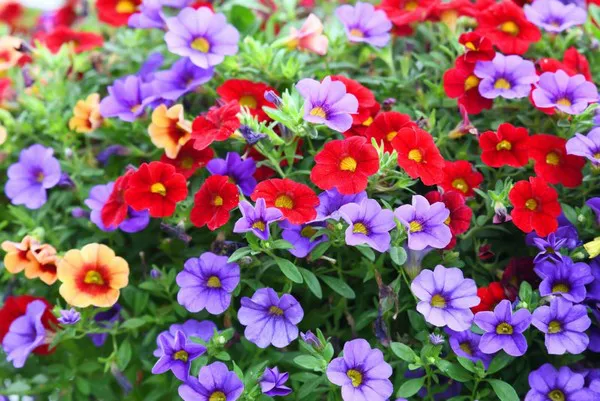Japanese beetles (Popillia japonica) are notorious garden pests that can wreak havoc on your ornamental plants and vegetables. These iridescent green and copper-colored insects are voracious feeders, leaving behind skeletonized leaves and damaged flowers. While there are various chemical methods to control Japanese beetles, many gardeners are turning to more natural and eco-friendly solutions. One effective strategy is to plant flowers that repel Japanese beetles. In this article, we will explore the world of Japanese beetle repellent flowers and help you maintain a beautiful and pest-free garden.
Understanding the Japanese Beetle
Before we delve into the flowers that can deter Japanese beetles, it’s essential to understand the lifecycle and habits of these garden invaders. Japanese beetles typically emerge from the soil as adults in early summer and feed on a wide range of plants for about six to eight weeks. During this time, they mate and lay eggs in the soil. The eggs hatch into grubs that feed on grass roots, completing the cycle.
Why Choose Natural Pest Control?
Chemical pesticides can effectively eliminate Japanese beetles, but they also pose risks to other beneficial insects, wildlife, and the environment. Natural pest control methods, such as planting beetle-repelling flowers, offer a more environmentally friendly alternative. These methods can help maintain ecological balance in your garden while reducing the risk of pesticide exposure.
Flowers That Repel Japanese Beetles
1. Marigolds (Tagetes spp.)
Marigolds are known for their bright orange and yellow blooms and their ability to repel Japanese beetles. These flowers emit a scent that deter beetles from feeding on nearby plants. Plant marigolds as a border or intersperse them among your susceptible plants.
2. Chrysanthemums (Chrysanthemum spp.)
Chrysanthemums contain pyrethrin, a natural insect repellent commonly used in organic pest control products. Planting chrysanthemums in your garden can help keep Japanese beetles at bay. Be sure to select the appropriate chrysanthemum varieties for your region’s climate.
3. Lavender (Lavandula spp.)
Lavender not only adds beauty and fragrance to your garden but also repels Japanese beetles with its aromatic oils. Plant lavender near susceptible plants to discourage these pests from feasting on your garden.
4. Rosemary (Rosmarinus officinalis)
Rosemary is a versatile herb that not only enhances your culinary endeavors but also serves as a natural Japanese beetle repellent. Its aromatic foliage can deter these pests when planted near susceptible plants.
5. Catnip (Nepeta cataria)
Catnip is known for its intoxicating effect on cats, but it’s also an effective Japanese beetle deterrent. The volatile compounds in catnip can keep these pests away from your garden.
6. Garlic (Allium sativum)
While primarily used in the kitchen, garlic can also help deter Japanese beetles. Planting garlic among your ornamental plants or vegetables can provide some protection against beetle infestations.
7. Nasturtium (Tropaeolum spp.)
Nasturtiums are not only beautiful, but they also act as a trap crop for Japanese beetles. These pests are attracted to nasturtiums, so planting them strategically can divert the beetles away from your more valuable plants.
8. Rue (Ruta graveolens)
Rue is an herb with a strong odor that repels many garden pests, including Japanese beetles. Be cautious when handling rue, as its sap can cause skin irritation.
9. Tansy (Tanacetum vulgare)
Tansy is a perennial herb with attractive yellow flowers. Its strong scent can deter Japanese beetles and other garden pests. Plant tansy in your garden to help protect your plants.
10. Mint (Mentha spp.)
Mint is another herb with pest-repelling properties. Its strong aroma can discourage Japanese beetles from infesting your garden. Plant mint in containers or confined areas, as it can become invasive in the garden.
Companion Planting Strategies
In addition to planting individual Japanese beetle repellent flowers, consider implementing companion planting strategies. Companion planting involves growing specific plants together to enhance each other’s growth or deter pests. Here are some companion plants that can help protect your garden from Japanese beetles:
1. Beans
Planting beans alongside susceptible plants like roses can deter Japanese beetles. The beetles prefer beans over roses, reducing damage to your ornamental plants.
2. Rue and Roses
As mentioned earlier, rue can deter Japanese beetles. Planting rue near your rose bushes can help protect them from beetle infestations.
3. Nasturtium and Squash
Nasturtiums can attract Japanese beetles away from your squash plants, reducing the risk of damage to your squash crops.
Other Natural Control Methods
While planting Japanese beetle repellent flowers and companion plants is an effective strategy, it’s essential to combine these efforts with other natural control methods:
1. Hand-Picking
Regularly inspect your plants for Japanese beetles and remove them by hand. Place them in a bucket of soapy water to prevent them from returning to your garden.
2. Row Covers
Use row covers to physically protect vulnerable plants from Japanese beetles. Ensure that the covers are properly secured to prevent beetles from accessing your plants.
3. Beneficial Insects
Attract and encourage beneficial insects like ladybugs, lacewings, and parasitic wasps to your garden. These insects can help keep Japanese beetle populations in check.
4. Neem Oil
Neem oil is a natural insecticide derived from the neem tree. It can deter Japanese beetles and other garden pests when applied to your plants according to the manufacturer’s instructions.
Conclusion
Gardening enthusiasts facing Japanese beetle infestations can take a proactive and eco-friendly approach to pest control by planting flowers that repel these garden pests. By choosing the right combination of Japanese beetle repellent flowers, companion plants, and natural control methods, you can enjoy a beautiful and thriving garden while minimizing the use of chemical pesticides. Creating a balanced ecosystem in your garden not only benefits your plants but also supports the overall health of your local environment. With these strategies in place, you can keep Japanese beetles at bay and maintain a garden that flourishes year after year.


